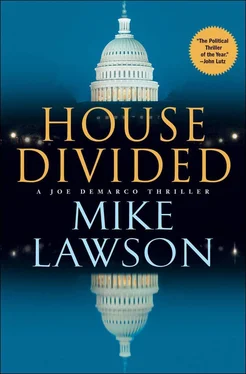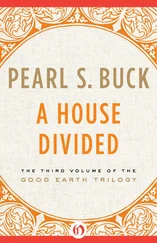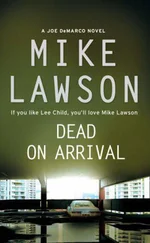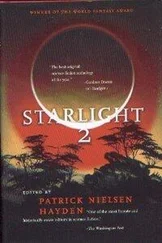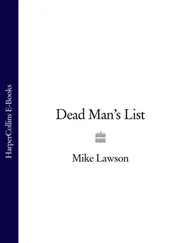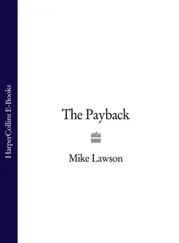Mike Lawson - House Divided
Здесь есть возможность читать онлайн «Mike Lawson - House Divided» весь текст электронной книги совершенно бесплатно (целиком полную версию без сокращений). В некоторых случаях можно слушать аудио, скачать через торрент в формате fb2 и присутствует краткое содержание. Жанр: Триллер, на английском языке. Описание произведения, (предисловие) а так же отзывы посетителей доступны на портале библиотеки ЛибКат.
- Название:House Divided
- Автор:
- Жанр:
- Год:неизвестен
- ISBN:нет данных
- Рейтинг книги:3 / 5. Голосов: 1
-
Избранное:Добавить в избранное
- Отзывы:
-
Ваша оценка:
- 60
- 1
- 2
- 3
- 4
- 5
House Divided: краткое содержание, описание и аннотация
Предлагаем к чтению аннотацию, описание, краткое содержание или предисловие (зависит от того, что написал сам автор книги «House Divided»). Если вы не нашли необходимую информацию о книге — напишите в комментариях, мы постараемся отыскать её.
House Divided — читать онлайн бесплатно полную книгу (весь текст) целиком
Ниже представлен текст книги, разбитый по страницам. Система сохранения места последней прочитанной страницы, позволяет с удобством читать онлайн бесплатно книгу «House Divided», без необходимости каждый раз заново искать на чём Вы остановились. Поставьте закладку, и сможете в любой момент перейти на страницу, на которой закончили чтение.
Интервал:
Закладка:
“Oh, God,” McGuire said.
“Come on. Spit it out. You can either talk to me or you can talk to the feds.”
McGuire didn’t respond immediately. He just sat there, looking down into his lap, shaking his head-but he wasn’t shaking his head as a sign he was refusing to talk. Instead, it was as if he couldn’t believe this was happening to him.
In a softer, less threatening tone, DeMarco said, “Anthony, please, tell me what you know. You owe it to Paul.”
McGuire finally raised his head and said, “Paul called me the day he was killed. He made a big deal about how he was calling from a pay phone, which I thought was strange, and he told me that a patient of his had told him something important.” McGuire then took a deep breath and said, “Paul said he thought this patient may have been killed. By the government.”
“By the government?”
“Yes. And he said he might be killed too because of what he knew.”
“Who was this patient?”
“He didn’t tell me.”
It had to be General Breed, DeMarco thought. “Did he tell you what this patient told him?”
“No. He said if he told me then I’d be in danger, too.”
“Then why’d he call you?”
“He said that if anything happened to him, I was to call a reporter at The Washington Post named Robert Hansen.”
“And tell Hansen what?” DeMarco asked.
“That Paul had hidden something at the church.”
“What church?”
“His church. St. James.”
“Did he tell you what he hid?”
“No.”
“Well, did he tell you where he hid it?”
“No. He just said to tell Hansen it was hidden at the church. And then I saw on the news that a reporter named Hansen had disappeared.”
“So then what did you do?”
“Nothing. I was afraid. I didn’t know who to call.”
“You didn’t do anything? You knew Paul might have been killed because of whatever this patient told him-and you just sat here?”
“He said the government killed his patient. The government, for Christ’s sake! Who the hell was I supposed to call?”
Gilbert made a copy of the DeMarco-McGuire recording. He stood up, poked his head over the top of his cubicle like a timid gopher peering out of its hole, and saw that Claire wasn’t in her office. He left a message on her answering machine and went to lunch.
25
Aaron Drexler had Dillon worried.
Clyde Simmer, his friend at the Justice Department, had told him that Drexler wasn’t a fool and Dillon confirmed this when he looked at the man’s academic record. And, as Clyde had also stated, Drexler worked quite hard; he spent fourteen hours his first day at Fort Meade. Bright and hardworking were good attributes in an employee. They were very bad attributes in an adversary.
Drexler spent the first day going through the intercepts Dillon had given him and then focused in on one particular operation. The NSA, in conjunction with the FBI and Homeland Security, had been watching three young Palestinian students for over a month. The men were registered as students at George Mason University but spent very little time at the school they were supposedly attending. The reason why they were being watched was because they had made an abnormally high number of tours of the U.S. Capitol and had taken extensive notes and photographs while touring. Some of their e-mails, written in an extremely crude code, discussed security procedures they had observed. The entire surveillance operation was being conducted in a completely legal fashion and with all required warrants.
Drexler called Dillon at one point and said he wanted to see all the paperwork associated with the Palestinian student operation-requests for warrants, interagency memoranda, surveillance observations, that sort of thing. Then he added, almost as if it were an afterthought, that he also wanted a list of NSA personnel who were monitoring the Palestinians’ communications-and Dillon immediately understood what Drexler was doing. Drexler was thinking that since the Palestinians lived in Arlington and not too far from the Iwo Jima Memorial, that maybe the NSA technicians who were monitoring the Palestinians had intercepted the Russo transmission inadvertently. When Drexler made his request, Dillon said. “Oh, I thought you understood, Mr. Drexler. We don’t have people monitoring those men. Our computers do all that for us. And as for the those intercepts I gave you, no one’s even listened to them yet.”
“You gotta be shittin’ me!” Drexler said. “What the hell’s the purpose of recording all this crap if you don’t listen to it?”
“Well, we will. Eventually,” Dillon said, doing his best impression of a flustered, fumbling bureaucrat. “It’s just that we’re so understaffed. It’s the budget cuts, you know.”
The next request Drexler made was for a list of all personnel on duty between the hours of midnight and six A.M. on the night Russo was killed-and Dillon happily gave him the information he wanted.
Whenever a person entered and exited an NSA facility, they swiped their ID badge through bar-code readers so that security personnel-including those in counterintelligence-would have a record documenting where people went and what time they arrived and departed. What Drexler still hadn’t grasped, however, was the size of the NSA. There were almost three thousand people working the night Russo was killed, and Dillon gave him all three thousand names, including the names of security guards, cleaning and maintenance personnel, and folks who came in early to prepare breakfasts in the cafeterias. When Drexler asked that the list be sorted by people’s occupations, Dillon said, “Oh, I’m sorry, we can’t sort the information that way, not automatically. All we want to know is who’s on base and where they’ve been in case something happens.”
The reality was that Dillon could have sorted the information by shoe size and eye color if he’d wanted to, but Drexler had no way to know that.
But now Drexler was no longer looking at the files Dillon had given him. In fact, he’d called Dillon and rudely demanded that the files be removed from his office, saying he couldn’t work surrounded by such clutter. For the last six hours, Drexler had been talking to people in the NSA’s Human Resources department-the folks who handled hiring and promotions and personnel records. And that’s why Dillon was worried. He couldn’t understand how talking to the folks in HR could possibly help Drexler, and therefore he was concerned that he was missing something.
Dillon placed his feet up on his desk and looked at the Picasso on the wall. The painting, as he’d told Drexler, was a self-portrait of the artist from his blue period and actually had been given to Dillon by his mother. In the painting, Picasso wasn’t bald as he became later in life. In this portrait he had a full head of dark hair, a thin, scraggly beard, and wore a heavy cloak buttoned to the collar as if he’d painted himself in an unheated room during the winter.
“What’s he up to, Pablo?” Dillon said to the painting. “Why’s he talking to the drones in HR? Those people can barely find their offices; they don’t have the slightest idea what we really do here.
“Come on, don’t sit there looking cold and confused. Help me out. Why’s he looking at personnel files? What will that gain him?”
As there were more than thirty thousand people who worked for the NSA, reviewing personnel files to find whatever he was looking for would take Drexler forever. And as for the files themselves, they didn’t give details related to classified assignments or specific operations. Drexler had to know that and, if he didn’t at first, he must know it by now. So what was he up to?
He sat glaring at Picasso another full minute, and when the Spaniard remained mute, he said, “Oh, all right, I’ll call him.”
Читать дальшеИнтервал:
Закладка:
Похожие книги на «House Divided»
Представляем Вашему вниманию похожие книги на «House Divided» списком для выбора. Мы отобрали схожую по названию и смыслу литературу в надежде предоставить читателям больше вариантов отыскать новые, интересные, ещё непрочитанные произведения.
Обсуждение, отзывы о книге «House Divided» и просто собственные мнения читателей. Оставьте ваши комментарии, напишите, что Вы думаете о произведении, его смысле или главных героях. Укажите что конкретно понравилось, а что нет, и почему Вы так считаете.
